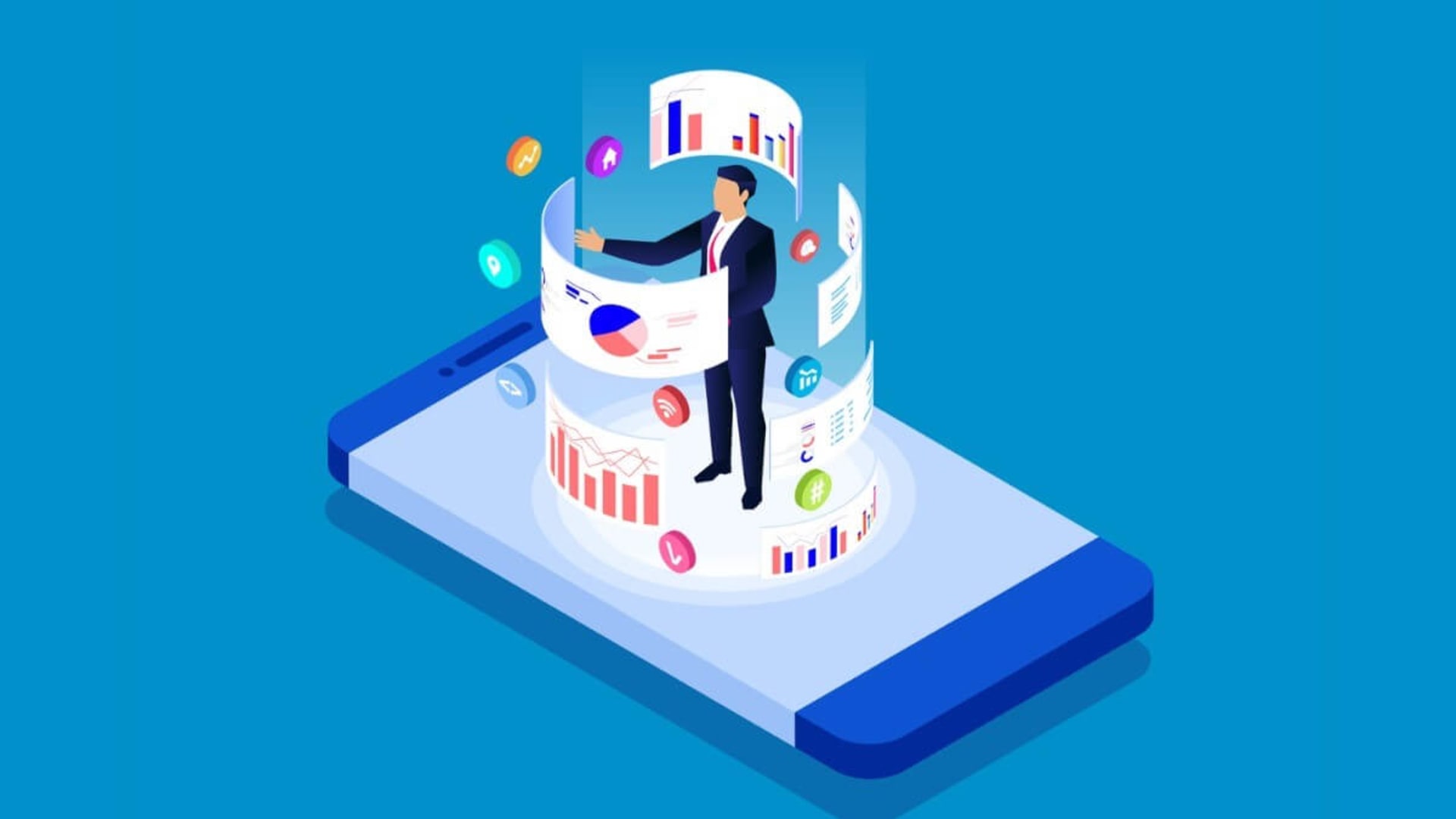A recent Gartner article states, “Many organizations lack a chief data officer (CDO), but CDOs generate exceptional value in driving digital transformation and building a data-driven culture.” These initiatives are critical in today’s data-based business environment. Data is at the heart of smart decisions about everything that makes companies successful, including innovation, effective marketing, customer care, employee satisfaction, efficiency, growth, and staying ahead of the competition.
Yet many companies lack the most basic plans or strategies to manage their data. The CDO role changes that condition. The Gartner article states, “The CDO has executive accountability for enterprise data and analytics assets, and for being intentional about measuring, managing and monetizing their value internally and externally.”
Though the role is a relatively new addition to the C-suite, it’s one that companies should consider. In the sections below, we discuss the advantages of hiring a CDO, provide questions to help you know if doing so makes sense for your company, and offer tips for hiring a CDO. But first, let’s explore more about what a CDO actually does.
What Is a CDO?
A CDO is a C-level executive in charge of managing data on all levels across the company. The CDO’s responsibilities include creating a data strategy, ensuring data quality, and overseeing data governance. According to TechTarget, the CDO’s goal is to “derive maximum value from the data available to the enterprise.”
CDO Responsibilities
Specific CDO responsibilities include the following.
- Managing data throughout its life cycle, including collection, consolidation of data silos, processing, storage, and analysis
- Ensuring a high level of data quality that leads to an accurate analysis by other data professionals and everyone in the enterprise
- Developing, enforcing, and updating data governance strategies
- Understanding and ensuring compliance with data protection and privacy regulations
- Initializing, using, and enforcing business intelligence and data analysis systems and practices to glean actionable insights
- Promoting data democratization and data literacy and supporting data access for all professionals who require it to boost their contribution to the company
- Supporting the improvement of business operations, research and development, marketing, employee satisfaction, customer experience, and other aspects of the company
- Cataloging and monetizing data
- Supporting product development and the marketing of new offerings
The CDO reports to the CEO, COO, or CFO and may work closely with the chief analytics officer (CAO), chief information officer (CIO), and chief information security officer (CISO). For some initiatives, the CDO may work with other leaders, such as the chief marketing officer (CMO), for promotional efforts.
The Changing CDO Role
As technology has changed, so have expectations of the CDO. In the past, the role was focused on using data governance practices to ensure compliance with regulatory requirements, assist departments across the company with getting the data they need, and procuring and maintaining data management applications.
Currently, the role is focused more on defining and leading a data-driven culture throughout the company, promoting data democratization, using data to meet high-level company goals, and finding ways to use data as an asset. As technology continues to evolve, the CDO role’s future will also change, focusing more on using data to support initiatives that use artificial intelligence (AI) and Internet of Things (IoT) applications.
Tools Used by CDOs
To meet these expectations, CDOs use various tools and technologies, including cloud applications, AI, machine learning, IoT resources, analytics, and business intelligence. Yet perhaps the most important tool a CDO can use is a human one — a team of professionals who understand industry challenges as well as the company’s culture and business goals and who can develop methods for using data to attain objectives.
Advantages of Hiring a CDO
When managed correctly, data can help organizations in innumerable ways. These include increasing efficiency, improving the customer experience, targeting promotional campaigns more effectively, and finding solutions to challenging problems. Given the importance of data in today’s business environment, it makes sense to ensure that someone within your company is looking after it. The CDO serves in that role, offering the following benefits.
Contribution to Business Value
As with all C-suite positions, the CDO helps the CEO be more effective in delivering value to stakeholders. How they do so depends on the organization’s strategies. A recent Forbes Business Council post states, “If the prime focus is on customer retention, then the CDO should prioritize this. If the focus is on reducing core operating costs to scale profitability, then the CDO should align the organization around this objective.”
Data Strategy Development
While companies that hire CDOs should have some preliminary ideas about how data can help move their company forward, they should rely on the CDO to create a data strategy for the future. The CDO should be able to support current company objectives but also see how data can contribute to future initiatives, especially in combination with emerging technologies such as AI and IoT.
DDDM Support
Data-driven decision-making (DDDM) is becoming a more common approach within modern companies. The CDO can help create a culture that supports and encourages DDDM by finding advocates for this approach among company leaders, training employees, normalizing the use of data, and creating the necessary infrastructure and processes to enable this approach.
Data Access Innovation
The CDO should work toward developing more efficient ways to collect, process, and distribute data. For example, they may decide to move the company’s data operations to a cloud-based system that is easier to access and enables all employees to rely on a single source of truth. They may create dashboards that help nontechnical employees to build and benefit from data-driven reports.
Data Security Improvement
One of the key responsibilities of a CDO is ensuring data security, which is critical for maintaining the company’s reputation and ability to compete. To ensure the highest level of security, the CDO should improve or develop data access policies and stay informed about data protection rules.
Data Monetization
As companies are becoming more reliant on data, they are also collecting it more. This resource is a valuable asset that provides monetization opportunities. With advanced knowledge about data usage, the CDO can identify potential outlets, creating additional revenue streams for the business.
Data Literacy Promotion
Because data has become so important, it is critical for most employees within an organization to understand, analyze, and communicate about it. Team members must start to develop these skills just as in decades past they had to learn how to use electronic spreadsheets, word processing applications, and internet browsers. The role of the CDO includes creating opportunities for them to do so. The following video highlights the purpose of data literacy.
Accelerated Digital Transformation
Digital transformation involves moving analog processes to the digital realm and developing new processes that are impossible with analog solutions. For example, a company may move to a document management system that enables many team members to review and apply changes to a document simultaneously or an invoicing system that automatically places information into other applications, such as a CMS or ERP.
A CDO can help with these initiatives by identifying which digital transformation initiatives are worthwhile and which fit in with company goals. Such goals may include driving innovation, improving the customer experience, increasing efficiency, and encouraging collaboration.
Questions to Determine Whether You Need a CDO
Don’t be tempted to hire a CDO just because it is the latest thing. Instead, make sure that you really need someone to help you take control of your data. If you answer yes to the following questions, then a CDO may make sense for your business.
- Is your company ready for a CDO? Don’t expect the CDO to build a data program from scratch. Instead, prepare for their arrival by researching how other companies manage data, creating infrastructure, considering such issues as data democratization and data centricity, and thinking about what data-related goals you want to accomplish. Finally, get employees, especially company leaders, on board with a data-centric approach and the CDO role.
- Have you set data-related goals? You should know enough about what data can do for your organization to set data-related goals. For example, do you want to focus on customers by gathering and analyzing as much data about them as possible to create more effective marketing campaigns?
Do you want to collect data from IoT devices attached to machinery to find out how you can be more efficient? Do you want to research what your competitors are doing to find out how you can differentiate your products and services? Or possibly a combination of these or other goals? - Do you know who the CDO will report to? To understand how the CDO would fit into your company, you should know who they will report to and work with to achieve data-related goals. While different arrangements may make sense for different companies, experts commonly recommend that the CDO report directly to the CEO, just like other top-level executives.
According to a recent article in the Data & Analytics Network, “Traditionally, the CDO has reported to the CIO, or CTO, [but] many … organizations have ultimately found this reporting structure problematic. Regarding data, the CIO/CTO has several competing priorities that may conflict with those of the CDO. Furthermore, CDOs who report into IT … struggle to gain credibility or engagement from the business.” - Do your leaders require more access to data? Are your department leaders struggling because they are not able to access the data they need to make decisions and pursue company goals? If the answer is yes, then your company could likely benefit from data democratization, which is empowering team members across the organization to develop reports and analyze data on their own.
How to Hire a CDO
Hiring a CDO for the first time may seem daunting, but the following steps can help.
Identify Challenges Data Can Help Solve
The Forbes Business Council article states, “What’s required is a forensic identification of problems data can fix, such as improvement in operational inefficiencies, or identification of opportunities that data can support, such as improvements in customer experience.” With the results of such an exploration, the hiring team can better communicate expectations to and answer questions from candidates.
Know What to Expect
Understand what you will be expected to provide in return for a CDO’s expertise. For example, you should be prepared to pay them well. According to ZipRecruiter, in late 2022, the average salary for a CDO is $173,896 per year. However, other sources report the average as being higher or lower, and this number can vary widely depending on responsibilities associated with the position, as well as the geographic region where they work.
Begin Your Search
Look for a CDO with the following credentials.
- Experience. Successful CDOs may come from a variety of professional backgrounds, some of them having to do with data and IT, and others not. Some are promoted from within the organization after working in IT, marketing, or finance.
- Education. CDOs commonly hold advanced degrees such as master’s degrees in technology or MBAs.
- Skills. Many CDOs have experience in the primary functions of data management, including collection, transformation, and analysis. Many have management or supervisory experience. CDOs must also have strong communication and presentation skills.
Ask the Right Questions
The following are questions to pose to potential CDOs. This list is by no means comprehensive, but it offers a starting point.
- What are the keys to managing a large team?
- What is the value of data, and how can we measure it?
- What are some of the elements of a data-driven culture? How can you help to put them in place?
- What are some good training methods for helping employees understand data?
- What strategies do you use to organize data structures?
- What would you do to protect the company and its customers in the event of a data breach?
- What are three ways in which you would create business value for our team?
- What are some current data trends, and how should companies respond to them?
- Why is data management necessary for achieving business goals?
Ensure Success
According to the Harvard Business Review, the average tenure of CDOs is just two to two-and-a-half years. That means that even more than with other positions within your company, you may have to work hard to ensure the success of a CDO.
- Define the role. The CDO role is still new, and companies are learning how to make the most of it. Before hiring a CDO, define exactly what the role will entail and what you hope to achieve by adding this position to your C-suite. For example, differentiate between responsibilities of the CDO versus the CIO.
- Educate employees. One of the reasons CDOs don’t always last long is that others in the company don’t understand the importance of data. To ensure the CDO is a valued and integrated team member, hold educational sessions or provide online resources to educate other employees about why data is critical throughout the organization and how they can work with the CDO to make the most of it.
- Institute change management. Adding a CDO means shifting to a data-centric approach that your company may not be ready for. Before creating this role, research what data-centricity means and how it can be integrated within your company. Develop plans to help team members in every department get comfortable with this transition.
An Investment in Your Company’s Future
Hiring a CDO may be unfamiliar and challenging. You may need to make minor or even major changes to be ready for a CDO and a more data-driven approach. But these actions are worth the effort, especially as your company moves toward its future goals. Data is truly the foundation of smart business planning and execution, and companies that don’t recognize its importance are already being left behind.
To get to the point of being less overwhelmed, think of data as a new type of asset that your company needs to manage. It can be compared to financial, intellectual, or human assets. You already know how valuable those types of assets are and how important it is to protect them. You have a CFO to manage the financial component and an HR manager to handle the human component. A CEO often handles the intellectual capital of a company. The CDO is the person who will ensure your data assets yield just as much value over time.







